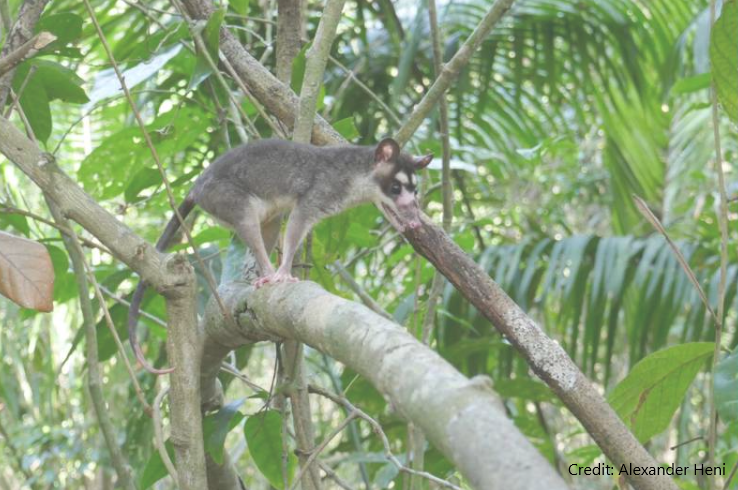
When night falls in Panama's forests, the time of the opossums begins. The marsupials, which have spent the day sleeping in trees, climb down the trunks and search for fruit, frogs or eggs on the ground. The omnivores often carry a hazardous parasite—the Chagas disease pathogen.
A new study by Ulm University published in the journal One Health has now shown that the more humans intervene in nature, the more host animals are infected with Trypanosoma cruzi, and the more the tropical disease spreads.
Magdalena Meyer, Georg Eibner, Alexander Christoph Heni, Kerstin Wilhelm, Simone Sommer, Changes in biodiversity drive trypanosome infections of wildlife in Panama, One Health, Volume 21, 2025,101113, ISSN 2352-7714, https://doi.org/10.1016/j.onehlt.2025.
Publication













